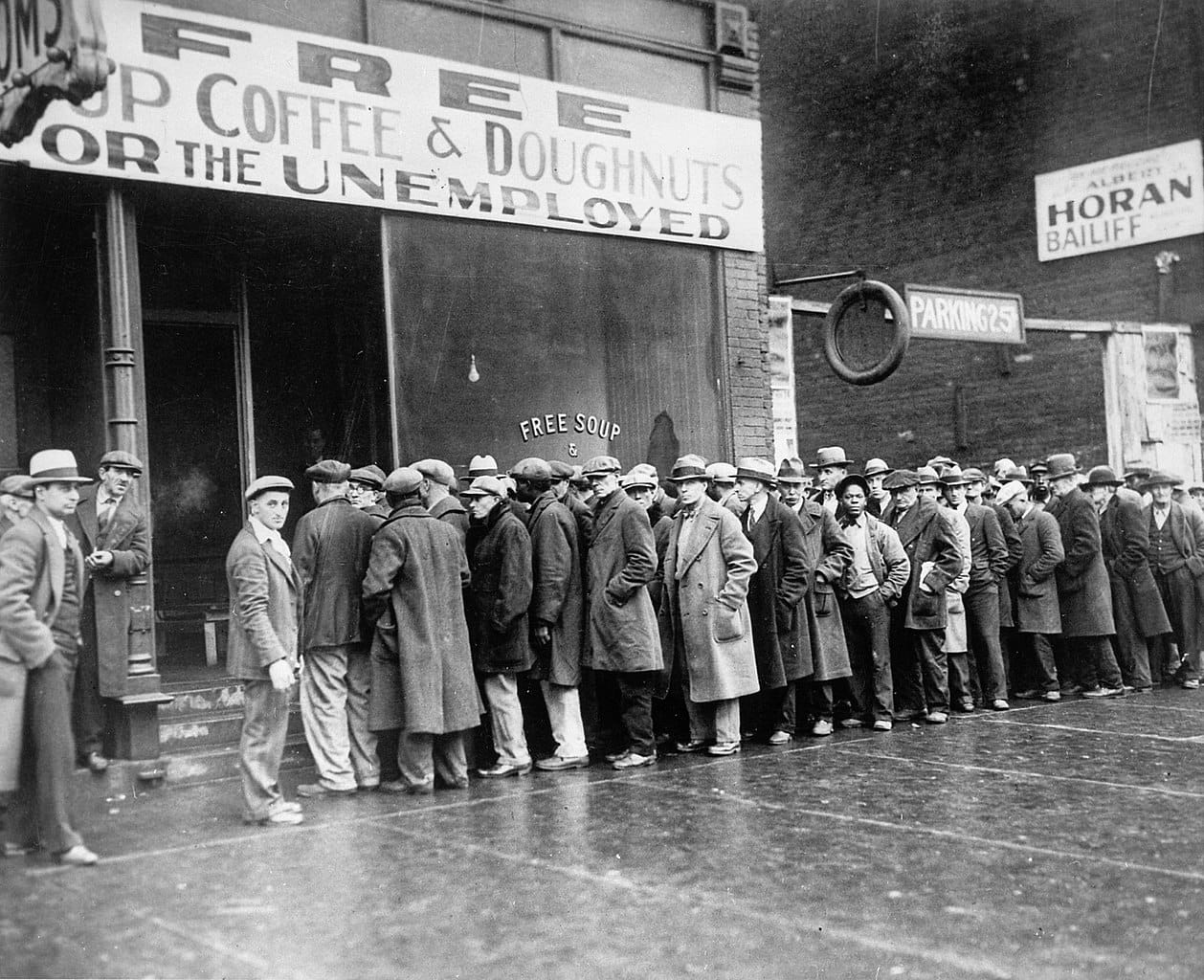Great Depression

I am always interested in the question of when various historical events acquire their names. For instance, when did people realize the global economic downturn that started with the Wall Street crash of October 1929 was great. And when did it become The Great Depression, an event with no peer?
The phrase great depression was applied to any number of earlier economic downturns, a simple collocation of terms, not a fixed label or proper noun. And at its start the 1929 downturn was no different. We see the phrase great depression being applied to it a little more than a month after the crash. For instance, there is upbeat (and unfortunately very wrong) analysis in the New York Times of 24 November 1929:
Reports of business heads to the President’s conference, Mr. Barnes said, should dispel the fears that existed that the country was running into a period of great depression. Retail stores reported, he said, the usual employment for this period of the year, mail-order houses were going along in a normal way and the “distribution of automobiles is normal for this period of the year.”
By the middle of 1930, though, it had become obvious that this particular depression was worse than the previous ones had been, and people had started to use the definite article with it, calling it the great depression. From Massachusetts Springfield Union/Springfield Republican of 13 July 1930 (the two papers published a joint edition on Sundays):
The taxes paid in March and June 1930, quarterly payments, were on the business done by American firms and individuals during the calendar year 1929, which takes in the autumn of the great depression.
Full recognition that it was a singular event came by 1931, when capital letters started to be used in the label. What had been simply a period of great depression had become the Great Depression. We can see it in an article in the 15 April 1931 edition of Windsor, Ontario’s Border Cities Star about Pasquale Venuta, who had taught music to bandleander Guy Lombardo and his brothers in London, Ontario:
While signal success attended his efforts in London, that was before the period of the Great Depression.
“There is not much money now,” he said, “to spend for music and this part of the young people’s education is being neglected.”
Sources:
“Barnes Assures Business Advance.” New York Times, 24 November 1929, 1/3. ProQuest Historical Newspapers.
“Heavier Federal Taxes Paid Here Past Fiscal Year.” Springfield Union/Springfield Republican (Massachusetts), 13 July 1930, 1/4. Readex: America’s Historical Newspapers.
“Lombardo’s Maestro Here.” Border Cities Star (Windsor, Ontario), 15 April 1931, 11/5. ProQuest Newspapers.
Oxford English Dictionary, third edition, 2013, s.v. Great Depression, n.
Photo credit: US government photographer, February 1931. US National Archives NAID 541927. Wikimedia Commons. Public domain image.